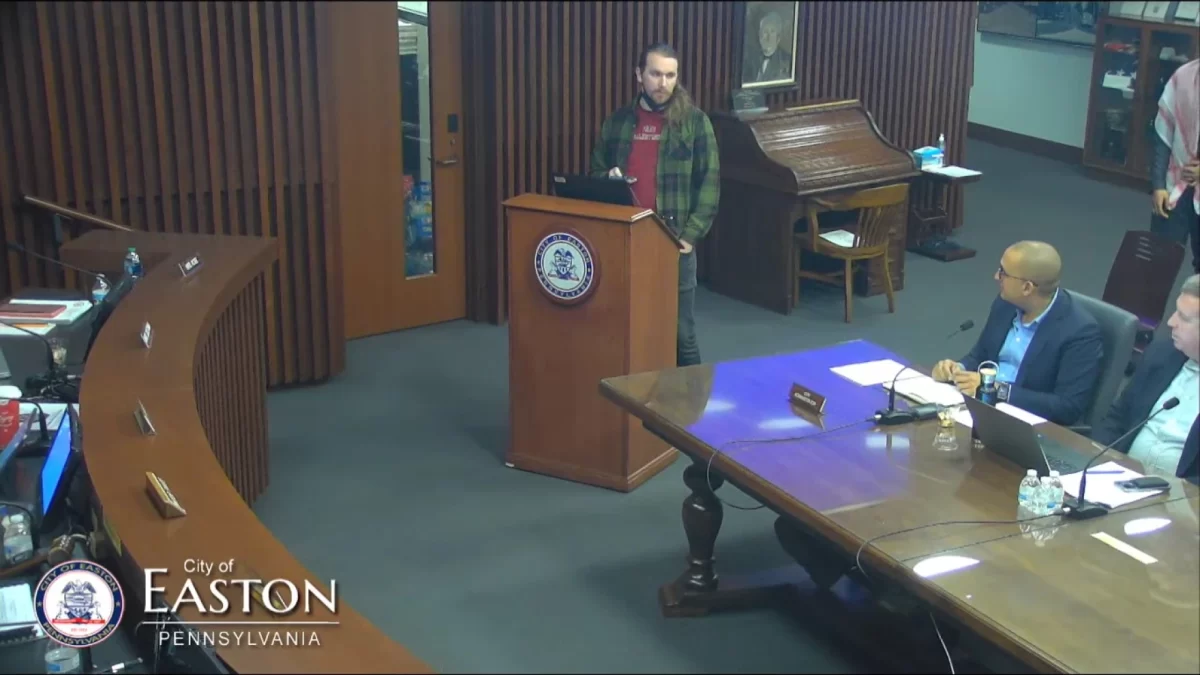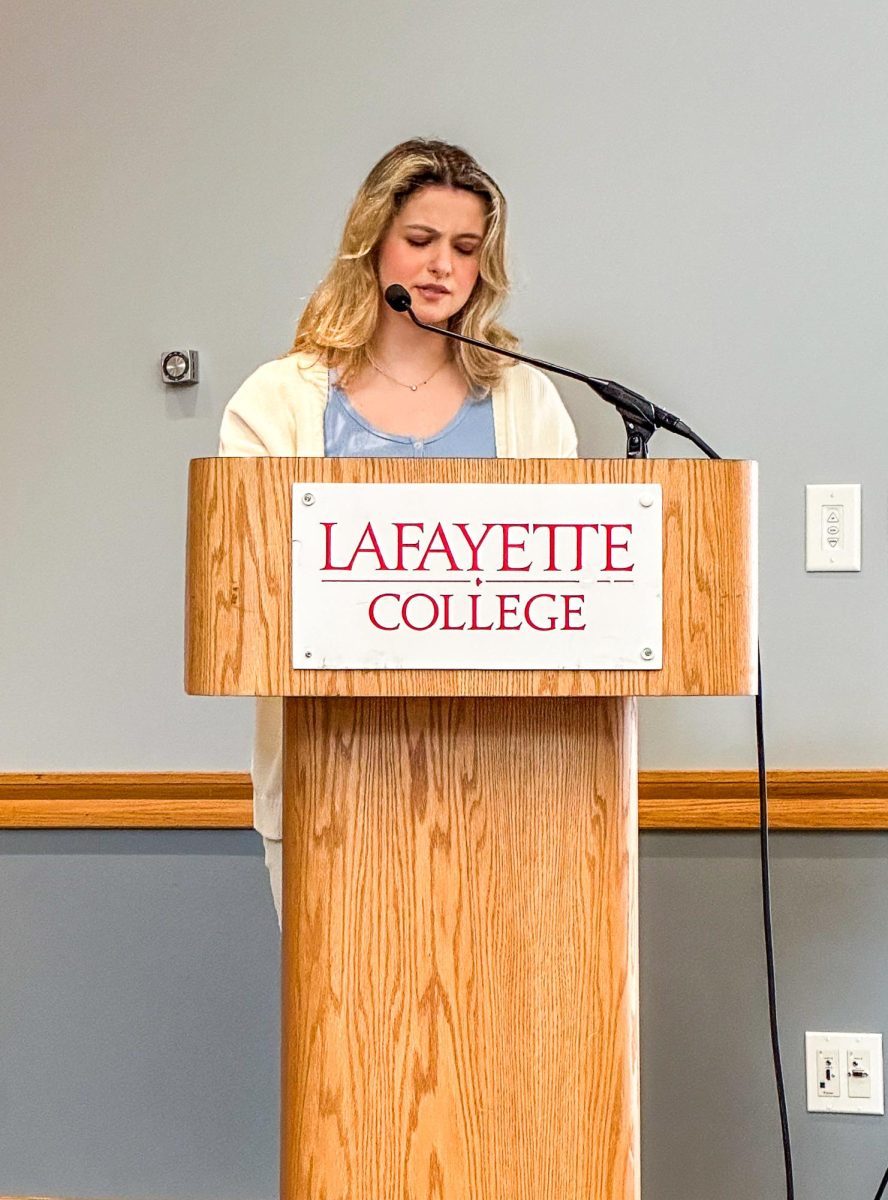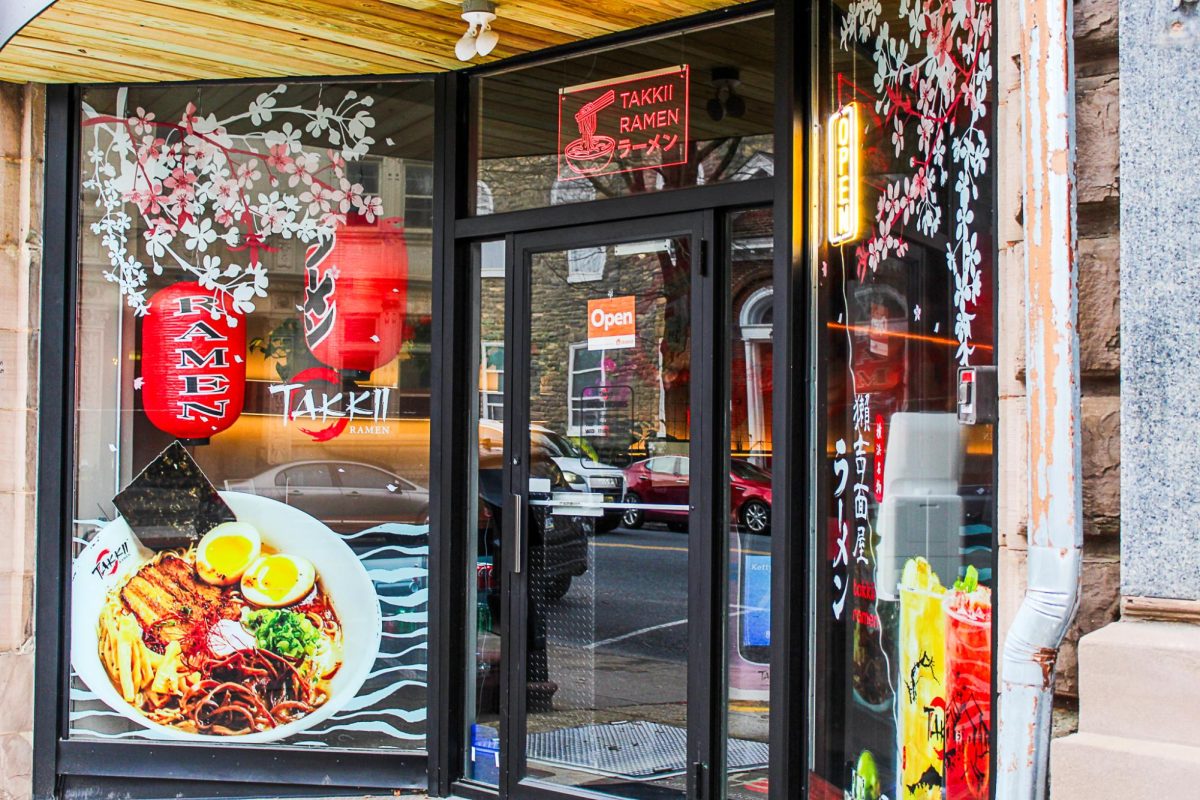College to unveil application process for new Greek organizations to join campus community
A process will be unveiled after spring break for Greek organizations to apply to be recognized by the college, ending over a decade of prohibiting new fraternities and sororities to be introduced to the campus.
The application process may mend the college’s relationship with Greek life, according to Vice President of Campus Life Annette Diorio.
“I’m hoping that fraternities and sororities are starting to see us…not as an adversary and not as somebody who’s trying to…push them off to the side, but somebody’s who’s trying to be supportive,” Diorio said.
Fifteen years ago, there were nine fraternities and six sororities at Lafayette. Now, there are three fraternities and six sororities that are recognized by the college.
Greek organizations, she said, may have felt that in the past few years the college has been targeting them. She said this was not the case.
The new three-part application process is an extension of the President Alison Byerly’s Connected Communities program, according to co-chair of the committee that developed the application process Connor Heinlein ‘15, in which all student organizations are viewed on the same platform by the college.
Heinlein said by confirming Greek life as a part of the Connected Communities program, the college is showing they are open to these organizations.
President of Kappa Kappa Gama Zeta Beta Chapter Emily Trojanowski ‘16 agrees, saying many students felt the college had negative feelings towards Greek life, even if that may not have been true. Still, she said, the application process shows the college’s support for these organizations.
The process emphasizes student interest and commitment to creating a new fraternity or sorority, according to Diorio.
Submitting a written request to the college to be recognized as an interest group is the first step in the application process. Members of an interest group must meet all the requirements of any student joining a Greek organization on campus.
Within six months, the group may submit an application to become a “colony”—a Greek organization supported by their national organization in the process of becoming fully recognized by the college.
To become a colony, the group must have a letter from the national organization that includes a plan to integrate the fraternity or sorority into the college. Most of the weight to integrate the organization into the campus community falls on the national organization and the interested students.
The college will not accept more than one colony from the same umbrella organization—North-American Interfraternity Conference, National Panhellenic Conference, etc.—at one time.
After two semesters, a colony will present in front of a committee made up of students and administrators to decide whether or not the college will officially recognize the organization. They are expected to explain how they will provide a unique experience at the college and comply with all of the college’s policies for students and Greek organizations.
Groups of students are already gearing up to apply. In fact, students interested in Chi Phi are already preparing an application so it can be submitted as soon as the criterion is released.
Chi Phi submitted an application to be recognized by the college before the process was finished last semester. They must reapply, however, Diorio said, since the process was not completed last semester.
The group is already recognized by their national organization, according to Spokesman for Chi Phi Rho Chapter Jack Poetzsch ‘16. They have not been using college facilities, he said, adhering to college policy.
Because the Chi Phi Rho Chapter is already nationally recognized, college liaison and Chi Phi Rho Chapter adviser Jerome Blakeslee ‘70 and Poetzsch anticipate the typical two-semester long colonization step of the application will be shortened for them. Diorio declined to comment on any specific group, but did say the timing of process could differ depending on a group’s relationship with their national organization.
“I haven’t presupposed anything in this process,” she said.
Chi Phi may also regain control over their old house, Vallamont, if recognized by the college.
“If they were recognized, and here as a recognized organization, there would be no reason whatsoever that we would not allow them use of it,” Diorio said.
The application process has interest from other groups of students besides those in Chi Phi, though. There was a discussion earlier in the week about the possibility of bringing a historically black sorority on campus. Other students expressed interest in Alpha Phi Omega, a co-ed service fraternity, and another group of about 30 students are looking into forming a different fraternity on campus.
Currently, the group is looking into three organizations to affiliate with, including Delta Tau Delta.
Spokesmen for the potential new Greek life interest group Collin Gaus ‘16 and Dan Pallotta ‘16 both believe this new application process is a unique and new opportunity for students, because the process is student-driven.
“The new process will allow for students to have a strong voice in choosing the social options that will be available to them in the future,” President Byerly wrote in an email.
“We hope and expect that this will allow all organizations on campus to feel more connected to the larger campus community,” Byerly added.
With the new administration, the college’s position on Greek life differs from what it was in the past, Blakeslee said.
“It’s a complete change in rhetoric,” he said. “And it changed with new leadership at the college.”
President of Delta Kappa Epsilon Rho Chapter Ryan Flynne ‘16, however, does not believe the college has changed their stance on Greek life. Instead, he said, the problem is that there are not enough different Greek organizations on campus to accommodate all of students’ interests.
“In my experience, the administration has only conveyed positive feelings towards us,” he wrote in an email. “The problem that exists now is that there are not enough organizations for students to affiliate with.”
“If [Greek organizations] are doing what they say they’re doing,” Diorio said. “If they are living to their core values, there is no college that would have a problem with them being here.”











































































































Richard S. Gilbert "62 • Mar 14, 2015 at 10:26 am
I am very much pleased to see that the College has finally made official the process by which Greek organizations may return to the campus. As a 55 year plus member of the Chi Phi Fraternity and having lived as an undergraduate student in Vallamont, the home of the Rho Chapter of Chi Phi on Lafayette’s campus, I do believe that the unique experiences of undergraduate membership in a fraternity or sorority can have life long benefits which help the graduate succeed in life. I look forward to Rho Chapter’s return to Vallamont and again becoming a positive contributor to the mission and objectives of Lafayette College. Dick Gilbert, Past National President of the Chi Phi Fraternity